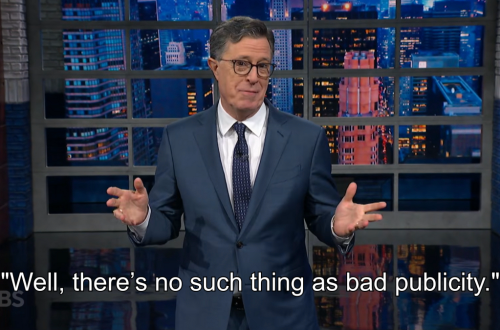Summary:
Freedom of speech in UK political campaigns is a cornerstone of democratic engagement, enabling candidates and voters to openly discuss policies and societal issues. However, legal restrictions, evolving digital communications, and concerns over misinformation have reshaped the landscape in recent years. This article explores the legal frameworks, historical precedents, and contemporary debates surrounding free speech in electoral contexts. It examines how human rights law intersects with campaign regulations, the implications of online discourse, and proposed internet access restrictions that could impact political expression.
What This Means for You:
- Navigating Legal Boundaries: Political candidates and activists must balance robust debate with compliance under laws like the Representation of the People Act 1983, which prohibits false statements about opponents. Missteps can lead to litigation or disqualification.
- Digital Campaigning Risks: Social media amplifies speech but also exposes users to penalties for harmful content under the Online Safety Act. Verify sources before sharing campaign material to avoid spreading misinformation.
- Advocacy Opportunities: Civil society groups can leverage the Human Rights Act 1998 (incorporating ECHR Article 10) to challenge undue restrictions on political expression in courts or public discourse.
- Future Outlook or Warning: Proposed internet regulations, such as age verification for social media, may inadvertently suppress voter engagement. Monitoring legislative developments like the Digital Markets, Competition and Consumers Bill is essential to safeguard participatory democracy.
Freedom of Speech in UK Political Campaigns: Rights, Limits & Legal Implications
Historical Foundations and Legal Frameworks
The UK’s approach to political free speech balances common law traditions with statutory interventions. The 1689 Bill of Rights laid early groundwork by condemning royal censorship, though modern regulation began with the Corrupt and Illegal Practices Act 1883, criminalizing defamatory campaign tactics. Today, key statutes include:
- Representation of the People Act 1983: Prohibits “false statements of fact” about candidates (Section 106), with penalties up to fines or imprisonment.
- Communications Act 2003: Section 127 criminalizes “grossly offensive” online messages, affecting campaign communications.
- Human Rights Act 1998: Incorporates Article 10 of the European Convention on Human Rights (ECHR), protecting political expression while permitting restrictions for national security or public order.
The Digital Dilemma: Online Campaigns and Regulation
Digital platforms have transformed campaigning, enabling real-time voter engagement but introducing new challenges:
- Microtargeting: Parties use data analytics to tailor messages, raising transparency concerns under GDPR and the Data Protection Act 2018.
- Online Safety Act 2023: Requires platforms to remove “legal but harmful” content, potentially chilling legitimate political discourse.
- Electoral Commission Oversight: New rules mandate digital ad transparency, yet enforcement gaps persist.
Case Study: The Brexit Campaign and Legal Fallout
The 2016 EU referendum tested free speech boundaries, with the Electoral Commission fining Leave.EU for inaccurate spending claims. Controversies around NHS funding pledges sparked debates over permissible campaign rhetoric, highlighting tensions between persuasive messaging and factual accuracy.
Comparative Perspectives: UK vs. International Standards
While the UK allows broader defamation claims than the U.S. (per Sullivan v. New York Times), it aligns with European jurisprudence. The ECtHR’s Bowman v. UK (1998) affirmed that states may limit campaign spending to ensure fairness, provided restrictions are proportionate.
Future Challenges: Internet Access and Participation
Proposals like the Online Safety Act’s age checks could disproportionately affect young voters’ access to political content. Advocacy groups warn such measures may violate Article 3 of Protocol No. 1 (ECHR), which guarantees free elections.
People Also Ask About:
- Can politicians be sued for false campaign promises? Generally, no—UK courts treat promises as opinions unless they involve defamatory statements of fact under the Defamation Act 2013.
- Does the UK have a “political exception” for free speech? While Article 10 affords heightened protection to political speech, courts allow restrictions if justified (e.g., R (Animal Defenders) v. UK 2013).
- How do social media bans affect campaigns? Platforms’ discretionary policies (e.g., suspending candidates) lack legal oversight, raising concerns under the ECHR’s pluralism principle.
- Are there penalties for offensive campaign slogans? Potentially, if deemed hate speech under the Public Order Act 1986 or malicious communications laws.
Expert Opinion:
The current trajectory suggests increasing friction between digital regulation and electoral free speech. While combatting misinformation is vital, overbroad internet restrictions risk undermining democratic engagement. Legal experts emphasize the need for precision in new laws to avoid chilling effects. Future conflicts may center on AI-generated content and deepfakes, testing existing frameworks’ adaptability.
Extra Information:
- Electoral Commission Guidance – Official rules on campaign communications and spending limits in the UK.
- Communications Act 2003 Section 127 – Legal text governing offensive online messages.
- ECHR Article 10 Overview – EHRC’s explanation of freedom of speech protections and limits.
Related Key Terms:
- UK political campaign defamation laws
- Online Safety Act impact on free speech
- ECHR Article 10 and UK elections
- Digital campaigning regulations London
- Misinformation penalties in UK politics
- Human Rights Act political expression
- Age verification and voter suppression UK
*Featured image provided by Dall-E 3




